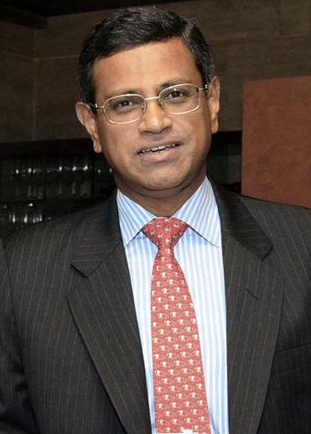 everage company Nestle believes it has to continue to be a mass market player in India, while focusing on tapping into the opportunity offered by the growing affluence of the urban consumer and the trend towards premium products. Nandu Nandkishore, Executive Vice-President, Nestle S.A., and Zone Director for Asia, Oceania, Africa and the Middle East, talked to Business Line about how India is missing out on a huge export opportunity in food. Edited excerpts:
everage company Nestle believes it has to continue to be a mass market player in India, while focusing on tapping into the opportunity offered by the growing affluence of the urban consumer and the trend towards premium products. Nandu Nandkishore, Executive Vice-President, Nestle S.A., and Zone Director for Asia, Oceania, Africa and the Middle East, talked to Business Line about how India is missing out on a huge export opportunity in food. Edited excerpts:How have the contours of the Indian business changed for Nestle?
We are looking at India as a growth engine. Growth is coming from rural and smaller towns and also from the top-end of the pyramid. The second important overlay is that there is malnutrition in the country and people are looking for solutions and healthier options like products with lower sodium levels or higher whole wheat products with high fibre. We have to cater to that demand, too. So, we launched the Masala Magic, the spice mix that consumers use in their vegetables or daals and is fortified with iron and vitamins, and it’s doing well. One of the fastest growing products for us in noodles is the whole wheat Atta Maggie noodles. We are looking to transform the company to be almost 100 per cent in areas where we can demonstrate positive focus on health and wellness.
Are you looking at entering the pet food segment?
We have to be in that space. We have to figure out what’s the best way to enter that space.
Nestle’s premium products haven’t got that much traction. Is it because there is an image problem — that you are strongly viewed as a value-for-money company — or that your products are not tailored right?
I believe it’s the fallout of the choice that we made over the last decade to focus on the mass market and we ignored what was under our nose, which is the huge explosion of opportunity of the upper end of the pyramid.
We have woken up and (for) the past two years, we have been systematically going for it, whether it’s Nescafe Gold or our Alpino chocolates. You can argue that we can have more premium noodle offering than vegetable atta noodles and that is something we should look at. There is opportunity in bringing out our top-end coffee solution Dolce Gusto, which offers shop experience of coffee at home, something we are definitely looking at.
We have to continue to be a mass market player at the same time we have to also play a different game at the premium end. Our biggest challenge is to create an organisation that’s able to manage both the extremes within the same company.
What sort of policy restrictions or bottlenecks do you see as a global company operating in the food business in India?
It’s difficult to give a direct recommendation from the policy point of view. I would look to point out to the opportunities. Globally, the demand for milk is growing faster than supply, which is the reason why milk prices are at the highest ever because of growing global population and increasing consumption of animal protein as people get more affluent.
What people do not realise is that nearly 50 per cent of all the animal protein consumed comes from milk.
There is a huge pressure on dairy protein globally. India is the world’s largest milk producer and its output of milk is abysmal compared to what outputs that can be realised with proper breeding of cows, better fodder and conditions. There is an incredible export opportunity. Nestle will buy good quality milk if it’s available, and India has a huge opportunity to feed population in other markets.
The policy makers will have to remember that once you embark on the export game, it’s not something you can switch off and on.
You can’t have a policy that allows you to export today and not tomorrow due to political reasons. In that respect, we will like to see a policy recommendation with some consistency and agricultural vision. India has the ability to do it.
Are you concerned with the slowdown in the Indian market?
Indian economy has slowed down in GDP (growth) and it has had an impact on business. But overall, there are still many good signs for FMCG, whether it’s the growing rural incomes, the growing premiumisation trend, urbanisation, modern trade and growth in Internet penetration.
We should not hide behind the slowing GDP growth. Companies can tap into these opportunities and offer value to the consumers.







